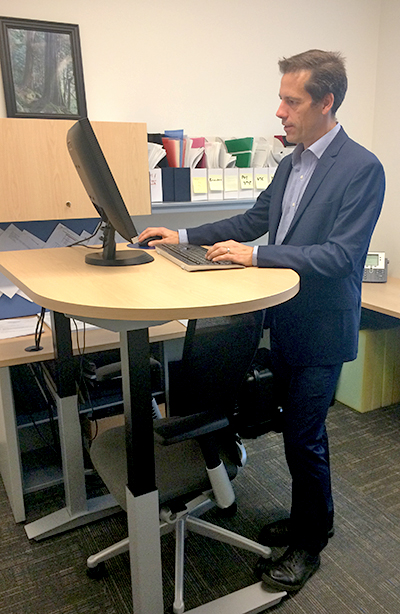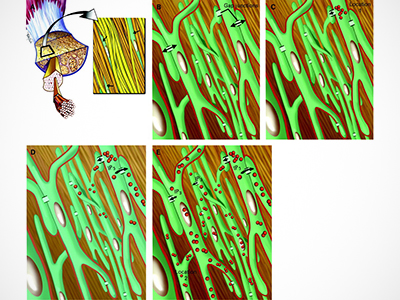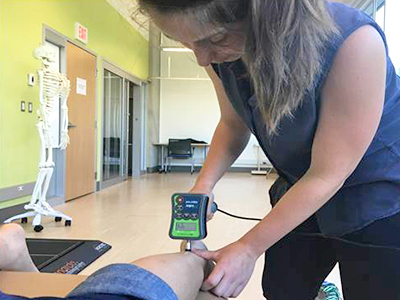
Welcome to Dr. Alex Scott’s lab—changing what we know about tendon injury and recovery.
Team members (L-R): Dr. Alex Scott, Jaewon Jeon, Mike Zaharadnik, Evan Finnamore and Kip Squire. Other students include Lyndal Solomons, Anne Dick and Thuraya Alktebi.
At the Centre for Hip Health and Mobility, Dr. Alex Scott, associate professor in the Faculty of Medicine, Department of Physical Therapy at UBC, oversees research that is changing what we know about tendon health. The Tendon Research Group studies overuse injuries and chronically painful tendon disorders in athletes and workers who use repetitive motions on the job, like cashiers or labourers.
Here’s an exclusive behind-the-scenes look at what goes on in one of the world’s leading tendon research labs.

Most people know that physical activity is important to their health, but few consider their tendons when they decide to take action. Dr. Scott says his group often sees tendon injuries in middle-aged patients who had become sedentary and are now trying to get active again. They forget about their tendons! In their enthusiasm to get fit, many people overdo it and end up injured. As we age, our tendons get weaker, and it’s important to take that into consideration when planning a new exercise routine.

You may have heard that tendonitis is a term that’s fallen out of use when describing the pain that affects tendons following repetitive use. Instead we now use the term tendinopathy because early researchers were able to find no evidence of inflammation within tendon cells. Thanks to Dr. Scott, tendonitis may be making a comeback. In heavily-cited paper Tendons – time to revisit inflammation, Dr. Scott challenges the conventional wisdom that tendon pain is caused by a degenerative process. His paper highlights that inflammation is part of the failed healing process underlying tendon pain, and his students are studying whether topical anti-inflammatory treatment will be a useful addition to traditional rehabilitation.

With the help of research participants, the Tendon Research Group is able to work with patients who are experiencing tendon pain to apply the knowledge gained from tendon cells and to gather new information. For example, by combining cutting-edge ultrasound technology with analysis of gene expression, Dr. Scott and his team were able to discover that muscles and tendons respond best to different types of exercise. So, while you might do several repetitions of a strength-building exercise to build your muscles, with tendons it may be more productive to do only one repetition of a tendon-targeted exercise and then rest before doing the next. Exercise is key to helping build strength in your tendons, but resting during your workout helps prevent their structure from deteriorating.
Would you like your lab profiled? Contact us today!


